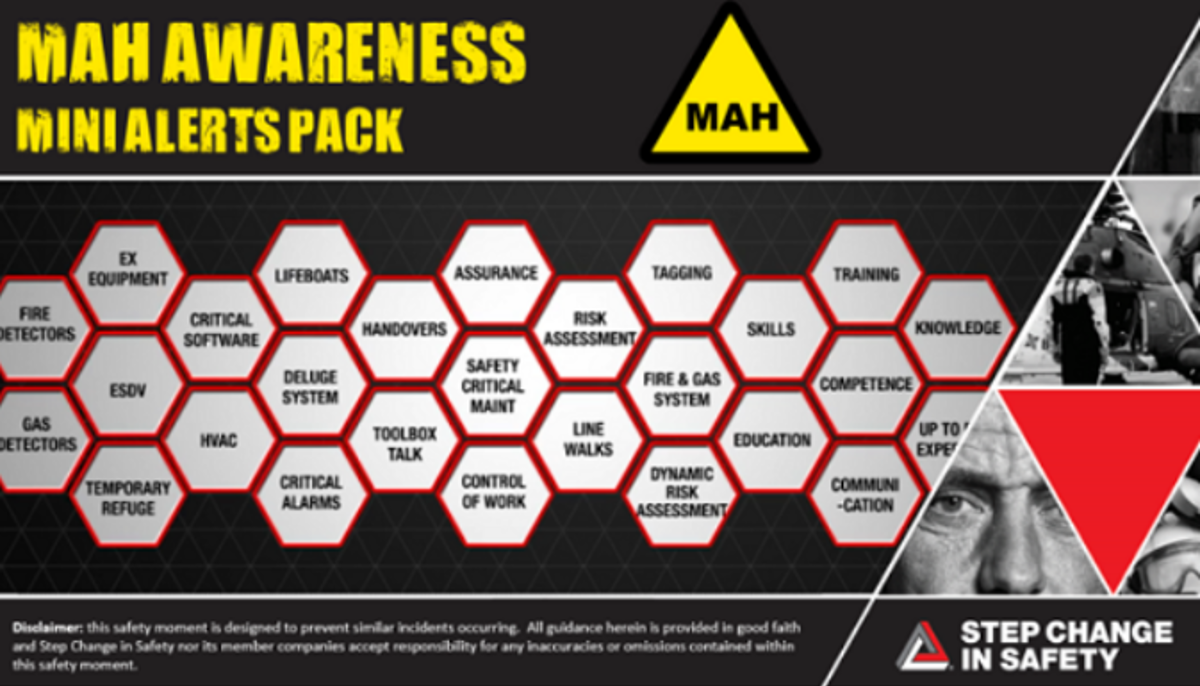Step Change in Safety – Major Accident Hazard (MAH) Awareness
- Safety Flash
- Published on 11 August 2021
- Generated on 22 February 2026
- IMCA SF 22/21
- 2 minute read
Jump to:
Step Change in Safety has published a safety moment or “mini alerts pack” on Major Accident Hazard (MAH) Awareness. It can be downloaded here.
The pack has been compiled to enable users to have proactive safety conversations about barriers to major accidents. It contains learnings from both oil & gas and other industries’ major accidents.
Each mini alert describes the circumstances, what went wrong and includes discussion points relating to the 7 Cs of Safety.
Major accidents included
The major accidents covered include:
- Chevron Richmond Refinery hydrocarbon leak of 6/8/2012 – nineteen persons engulfed by fire
- Costa Concordia disaster of 13/1/2012 – ship holed, 32 fatalities
- DuPont Chemical Release of 23/1/2010 – one fatality
- Flixborough disaster of 1974 – 28 fatalities in chemical plant fire and explosion
- Grenfell Tower – 14/6/2017 – tower block fire leading to 72 fatalities
- Lindsey oil refinery – 29/10/2010 – one fatality
- Mumbai High – 27/7/2005 – oil rig fire and explosion, 22 fatalities
- Pryor Trust well blowout – 22/1/2018, five fatalities
- Tenerife airport disaster of 1977 – aircraft collide leading to 583 fatalities
IMCA works closely with Step Change in Safety https://www.stepchangeinsafety.net/ to promote and encourage sharing of incidents and to reduce incident and injury rates
IMCA Safety Flashes summarise key safety matters and incidents, allowing lessons to be more easily learnt for the benefit of the entire offshore industry.
The effectiveness of the IMCA Safety Flash system depends on the industry sharing information and so avoiding repeat incidents. Incidents are classified according to IOGP's Life Saving Rules.
All information is anonymised or sanitised, as appropriate, and warnings for graphic content included where possible.
IMCA makes every effort to ensure both the accuracy and reliability of the information shared, but is not be liable for any guidance and/or recommendation and/or statement herein contained.
The information contained in this document does not fulfil or replace any individual's or Member's legal, regulatory or other duties or obligations in respect of their operations. Individuals and Members remain solely responsible for the safe, lawful and proper conduct of their operations.
Share your safety incidents with IMCA online. Sign-up to receive Safety Flashes straight to your email.
